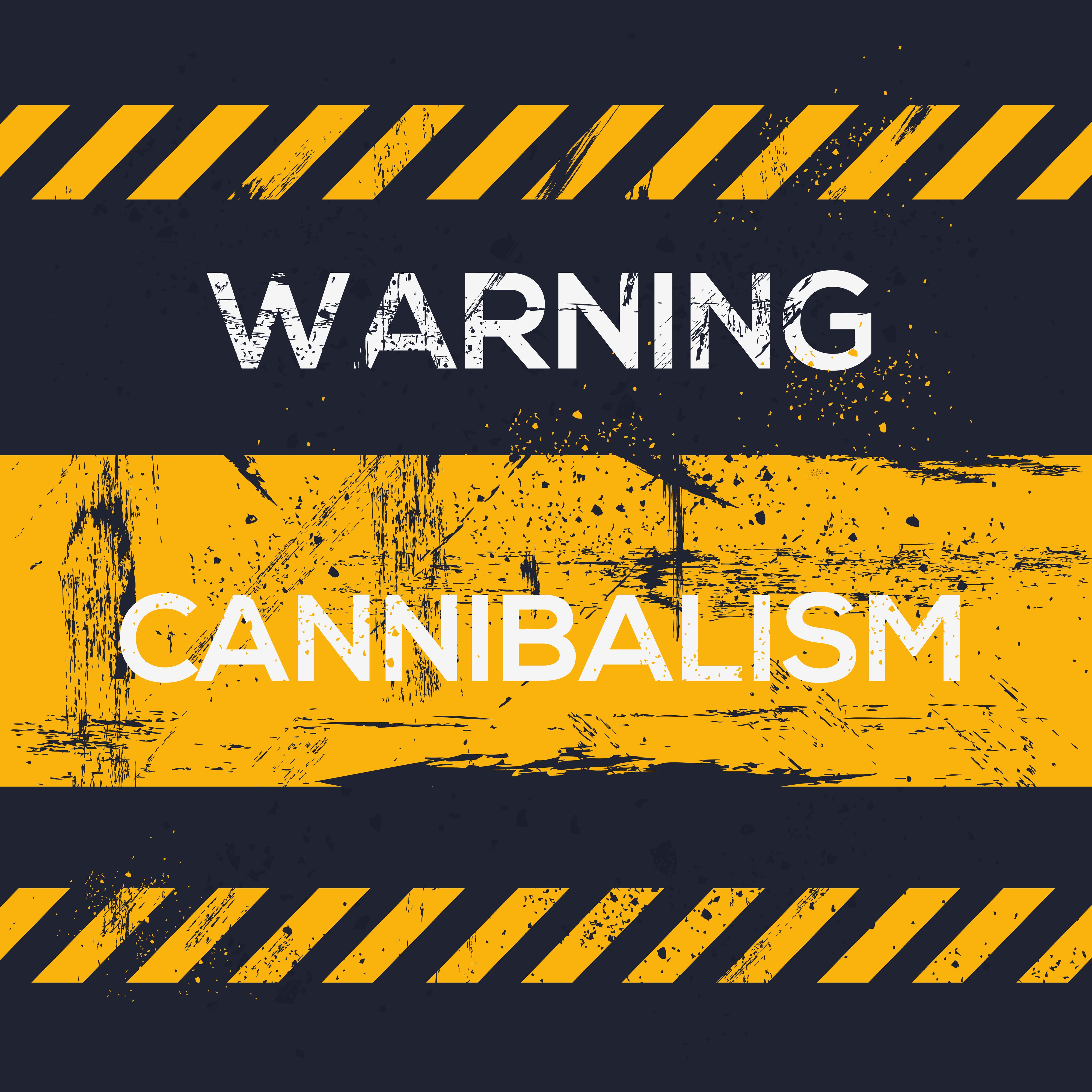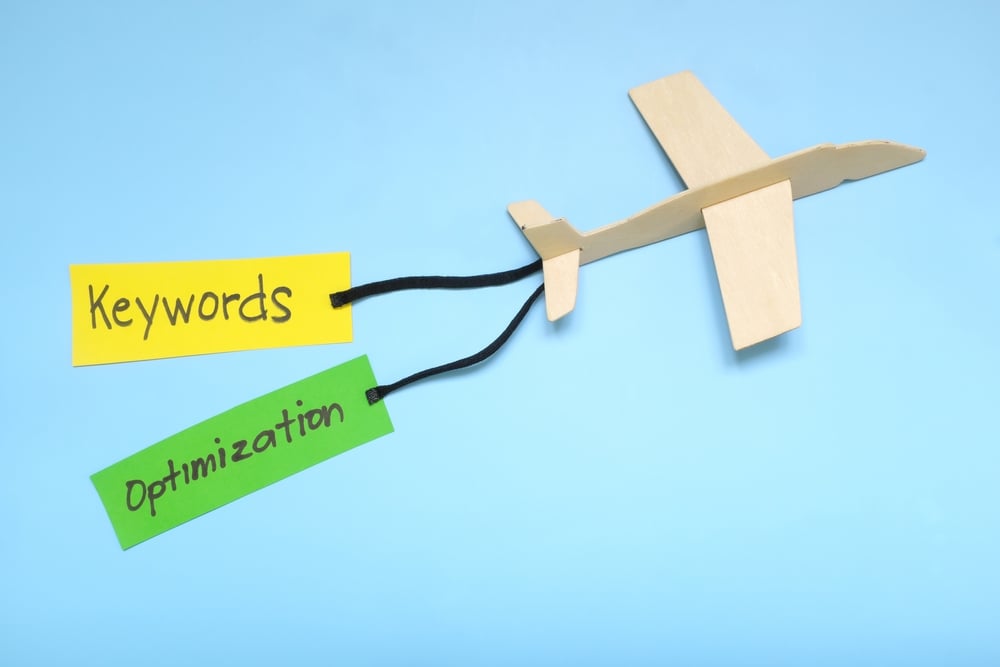Targeting the same keyword on multiple pages might seem like a great strategy. After all, if one page ranks, couldn't two or three pages rank even better? Doesn't that mean more traffic for your website?
Unfortunately, this approach can cause more harm than good. If you're not careful, you can end up with a phenomenon known as keyword cannibalization.
Understanding Keyword Cannibalization

The term "keyword cannibalization" comes from the idea that your website is "eating" itself by competing with itself for ranking in search engines. When you're using multiple pages to target the same keyword, you're diluting everything, from your content and links to your CTR and conversion rates.
Instead of proving your authority to Google, you're confusing the algorithm and giving it mixed signals. Essentially, you're saying that you don't know which page is better suited to the query, so Google should choose. As a result, your search presence suffers, and individual pages might not rank as well as they could. In some cases, pages might not rank at all.
For example, let's say you sell clothing for men and women. If the only keywords you're targeting are "women's clothes" and "men's clothes," you're telling Google that your website is only relevant to those two queries. But what if someone searches for "dresses," "pants," or "shirts?"
Since you're not targeting those keywords, Google has no way of knowing that your website is relevant to those queries. It also means that you're leaving a lot of potential traffic on the table because you aren't targeting any long-tail keywords, many of which have a greater degree of commercial intent. For example, someone searching for "men's black dress shoes size 12" is much more likely to make a purchase than someone who simply searches for "men's clothes."
5 Negative Consequences of Keyword Cannibalization for SEO

There are many negative consequences that can come from keyword cannibalization. Here are five of the most common ones:
1. Reducing Page Authority
One of the most common consequences of keyword cannibalization is that it can reduce the authority of your pages. When you have multiple pages targeting the same keyword, you're essentially splitting everything up.
So instead of having one page with a lot of content, links, and social signals, you now have two or three pages with fewer resources to work with. This can make it more challenging to rank in search engines, especially if you're up against competing pages that don't have the same problem.
2. Diluting Your Link Equity
Another common consequence of keyword cannibalization is that it dilutes your link equity. Link equity is the value passed from one page to another through links.
When you have multiple pages targeting the same keyword, the link equity is split between those pages instead of being focused on one page. This can make it more difficult to rank in search engines because you don't have as much link equity working in your favor.
3. Confusing Google
Keyword cannibalization can also confuse Google, which can have a negative impact on your SEO. This is because Google relies on a number of ranking signals to determine where your pages should rank in search engines.
If you're targeting the same keyword on more than one page, Google has to basically guess which page is most relevant to that query. As a result, individual pages might not rank as well as they could.
4. Reducing Your CTR
Keyword cannibalization can also reduce your CTR on Google searches, which can harm your SEO. If you've got multiple pages in the search results for the same term without any hierarchy, people are more likely to skip over them because they won't know which one is relevant. This can lead to a lower CTR, hurting your SEO because Google uses CTR as a ranking signal.
5. Decreasing Your Conversion Rate
Last but not least, keyword cannibalization can also decrease your conversion rate. If people see multiple pages from the same website for the same query, they won't know which one is best for their needs. This can lead to confusion and frustration, which can cause searchers to bounce from your website without converting.
Keyword cannibalization can have many negative consequences for your SEO. If you suspect that you might be suffering from keyword cannibalization, you can do a few things to fix the problem. But first, let's look at how to identify keyword cannibalization.
Does Your Site Suffer from Keyword Cannibalization?

There are a few different ways you can determine if your website suffers from keyword cannibalization. The first and simplest is to create a spreadsheet with all of your website's URLs and the associated target keywords. If you have a lot of pages, this can be a bit time-consuming. But it's still the best way to get an accurate picture of your website's keyword targeting.
Another way to identify keyword cannibalization is to use a tool like Screaming Frog. Screaming Frog is a website crawler that will crawl your website and collect data about your pages. Once it's finished crawling, it will generate a report that you can use to find instances of keyword cannibalization.
If you don't want to crawl your entire website, you can also use Google Search Console to find instances of keyword cannibalization. Google Search Console is a free tool that lets you see how your website performs in Google searches.
Once you've added and verified your website, you can use the "Search Traffic" > "Search Analytics" report to find instances of keyword cannibalization. Select "Queries" from the drop-down menu and then use the filter options to find pages targeting the same keyword.
Fixing Keyword Cannibalization
Once you've identified instances of keyword cannibalization, there are a few different things you can do to fix the problem. The strategy you choose will often depend on the cause of the issue. Some will be simple fixes, while others will require you to use redirects or even create new landing pages. Let's check out some solutions.
Adjust Your Website's Structure
One of the simplest ways to fix keyword cannibalization is to adjust your website's structure. First, find the page that has the most authority and convert it into a landing page. From there, you can link to the other pages on your website that target variations of that particular keyword.
For example, if you have a page targeting the keyword "red shoes" that has a lot of authority, you can convert it into a landing page and then link to other pages on your website that target keywords like "red sneakers" and "red dress shoes." This will help Google understand the relationship between these pages and can help you rank for all of the related keywords.
Use Redirects
If you have two pages targeting the same keyword, you can use a redirect to send traffic from one page to the other. This is a good solution if you have multiple pages ranking for the same keyword. It's also important for the content to be similar and for the less relevant pages to redirect to one page with greater authority.
You'll need to edit your website's .htaccess file to set up a redirect. This is a configuration file used by the Apache web server. If you're unfamiliar with editing this file, it's best to contact your web developer or host to set up the redirect.
Consolidate Content
When multiple pages target the same keyword and feature similar content, it can be helpful to consolidate that content into a single page. This is a good solution if you don't want to use a redirect.
To consolidate content, you'll need to combine the relevant content from each page into a single page and then delete the other pages. Make sure you first determine which page offers the best results in terms of traffic and authority.
If you find that multiple pages offer high levels of performance in different areas, you'll have to pick and choose. For example, if one page has a higher CTR and another converts better, you would want to use the URL of the page with higher traffic levels and incorporate the copy from the page that converts better.
Once you've consolidated the content, you can then 301 redirect the old URLs to the new URL. This will help ensure that any link equity and traffic going to the old pages is redirected to the new page.
Create New Landing Pages
If you're targeting multiple keywords that are related, it can be helpful to create new landing pages. This is a good solution if you want to target a group of keywords but don't want to cannibalize your existing content.
Creating new landing pages will require you to write new copy and may require you to create new graphics. But, it will be worth it if you can rank for a group of related keywords.
To create a new landing page, start by brainstorming a list of related keywords. Once you have your list, you can start writing copy for the new page.
Make sure you include the main keyword in the title, metadata, and throughout the content. You should also include variations of the keyword as well as related keywords. From this landing page, you can then link to other pages on your website that are related.
For example, if you have a site that sells cookware, you could create a landing page for the keyword "kitchen utensils." On this page, you would then link to other pages on your website that sell specific kitchen utensils like "spatulas" and "cooking knives."
Use the Rel Canonical Tag
If you have multiple pages targeting the same keyword, you can tell Google which page is the most important by using the rel="canonical" tag. This is especially useful if your e-commerce platform generates multiple pages for the same product with only slight variations, such as color.
The rel="canonical" tag is a code that you can insert into the head of a web page. It suggests to Google that this page is the most important page for this keyword. While there is no guarantee that Google will honor this request, it's still worth using.
To use the rel="canonical" tag, you'll need to edit the code of your web page. If you're not familiar with code, it's best to contact your web developer or host to help you with this.
If you want to be sure that some of the pages don't show up in the search results, then you are better off using a "noindex" tag on those pages.
Use Different Keywords
If you're finding that you're constantly running into keyword cannibalization, it may be time to revisit your keyword strategy. You may be targeting the same keywords over and over again.
So, first, list all the pages targeting the same keywords, then analyze the content to see if you can find any new keywords to target. Of course, the new keywords you choose must be relevant to the content on the page.
For example, if your page is about "cooking stoves," you could target the keyword "kitchen ranges." However, if your page is about "kitchen utensils," you wouldn't want to target the keyword "kitchen ranges" because it's not relevant to the content on the page.
Avoiding Keyword Cannibalization in Future

The best way to avoid keyword cannibalization in the future is to plan your website's structure and content before you start writing. Start by listing all the topics you want to write about. Once you have your list, you can start grouping related topics together.
For example, if you have a website about cooking, you could group all the articles about "cooking stoves," "kitchen ranges," and "kitchen utensils." Then, you can start mapping out the structure of your website. You'll want to create separate pages for each group of related topics.
This may seem like a lot of work upfront, but it will save you a lot of time and effort in the long run. Plus, it will help you avoid keyword cannibalization and optimize your website for SEO.

 10 min read
10 min read





 13 min read
13 min read

